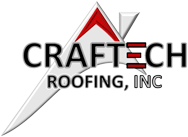Denver homeowners exploring metal roofing can quickly become overwhelmed by the number of options available. One source of this confusion is that “metal” can either refer to different types of materials or just the most common one. Therefore, choosing which metal to use is the first step you need to take before installation can begin.
- Zinc
- Copper
- Aluminum
- Steel
Pros Of Metal Residential Roofing
Metal roofs give homeowners a lot of benefits. Two of the biggest ones are better resistance to various weather conditions and a longer lifespan than shingles. In addition, manufacturers can mold it into an endless array of design options to fit any aesthetic.
- You don’t have to deal with roof replacement after every bad storm.
- Metal shingles give you a traditional style plus all of the advantages of metal roofing.
- Typically, the only maintenance you’ll need is an annual inspection and wash.
- Metal products come at a variety of price points.
- Many metal panels are designed to expand and contract with temperature swings, minimizing damage to your roof’s sub-layers.
- Metal resists rot, mildew, fire, and pests like rodents and termites.
- A metal roof can last between 40 and 100 years.
- Most of these materials are 100% recyclable, making them top-tier green building materials.
Cons Of Metal Roofing
Each metal has its own set of strengths and weaknesses. Particular panel styles are better or less suited to specific environments. The best one for your house will depend on where you live and the stresses your new roof must endure.
- Going with thicker gauges offers more durability and dent resistance, but it’ll cost more too.
- Few suppliers may stock your metal of choice, limiting its availability.
- Metals that aren’t in high demand usually have fewer color options.
- Cheaper, thinner gauges don’t make suitable roofs, so you’re saving less money than you might think.
- High shipping costs can make some materials too expensive for the average homeowner.
- Roofers should replace screws on exposed fastener panels every five years to prevent leaks and secure them from high winds.
Zinc Roofing
Zinc roofs are more prevalent in Europe because of how expensive it is for Americans to import the material. Those who can afford it gain a striking roof that develops a beautiful grayish-blue patina over time. This patina also serves as a natural protective barrier against rust.
Zinc isn’t recommended for areas with heavy rainfall since it can produce a chalking residue wherever water runs. In addition, zinc is soft, meaning that hail can easily damage it. Finally, it’d be best if you also took care when choosing a shingle design since zinc is susceptible to wind damage.
Copper Roofing Projects
Copper is a lot like zinc in terms of price and beauty. However, over time, copper also develops a patina, from a shiny new penny to an iconic blue-green like the Statue of Liberty. In addition, the natural patterns and color variations make each copper roof unique.
Being a soft metal, copper also shares zinc’s weakness against hail. Another downside is its tendency to expand and contract with changing temperatures more than other kinds of metal. Choosing a flexible panel design (such as a standing seam) can help mitigate this, but the sharp temperature changes you’re used to can degrade your copper roof over time.
Aluminum Roofing
Aluminum is a lightweight, non-corrosive metal that’s long been a favorite for commercial customers. With a medium average cost, it’s also easier on homeowners’ budgets. Aluminum is also surprisingly durable since its strength-to-weight ratio is higher than most metals.
All this said, aluminum isn’t a recommended choice for Colorado homeowners. You’ll be forced to buy the thickest, most expensive gauges to get decent hail resistance. Aluminum’s natural patina isn’t pretty, so the roof’s painted coating will need regular reapplications.
Steel Roof Installations
Steel is the most common and least expensive metal roof in the United States. It’s so common that, in many circles, the term “metal roof” is synonymous with steel roof. It’s also the hardest metal on the market, able to easily withstand hail and high winds.
While steel is the preferred choice for Coloradans, it also has the shortest service life of all the materials on this list. That’s because steel lacks a natural patina, making it more vulnerable to rust. Steel can bear the weight of thick Rocky Mountain snow drifts, but too many spring melts will rust and weaken your roof.
Contact A Denver Roofing Company Today
Many forward-thinking Colorado homeowners are updating to a metal roof. Often, the choice of metal comes down to appearance and cost. If you want to install the last roof your home will ever need, call Craftech Roofing today to get started.



